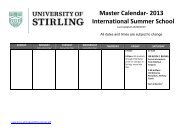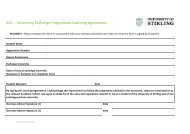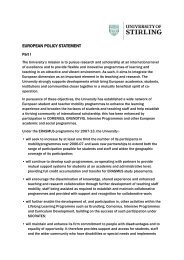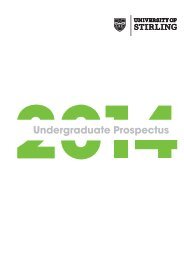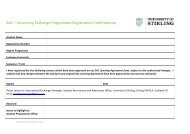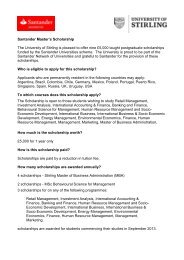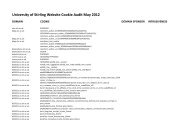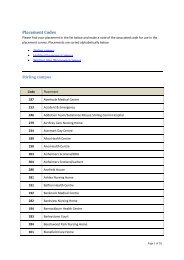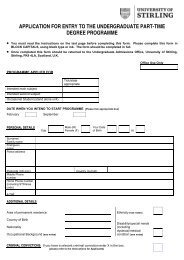Supporting a uK SucceSS Story: The impacT of - Research Councils ...
Supporting a uK SucceSS Story: The impacT of - Research Councils ...
Supporting a uK SucceSS Story: The impacT of - Research Councils ...
Create successful ePaper yourself
Turn your PDF publications into a flip-book with our unique Google optimized e-Paper software.
Health and Wellbeing:<br />
Healthy mind<br />
<strong>The</strong> pressure <strong>of</strong> competing at an Olympic or<br />
Paralympic level can take its toll on the metal<br />
as well as physical wellbeing <strong>of</strong> an athlete.<br />
When interviewed about their performance,<br />
sports stars <strong>of</strong>ten talk about their mental<br />
preparation as much as they do their physical<br />
training. A common thought is that a healthy<br />
mind helps maintain a healthy body and so it<br />
is important that athletes prepare both before<br />
a big event. <strong>Research</strong>ers from universities<br />
across the UK are working with athletes to<br />
help them maximise their performance by<br />
maintaining a healthy mind.<br />
Understanding how athletes’ brains work<br />
While sporting success is dependent on talent and dedication, a<br />
researcher at Royal Holloway, University <strong>of</strong> London has discovered<br />
that success also lies in the ability <strong>of</strong> the brain to develop<br />
automatic thinking and movement. <strong>The</strong> research involved scanning<br />
participants’ brains using a Magnetic Resonance Imaging (MRI)<br />
scanner while they were asked to learn certain skills. This allowed<br />
the researchers to analyse the ways in which the brain learns<br />
mental and motor skills.<br />
By the end <strong>of</strong> the study, these mental skills had become so<br />
automatic that the participants were able to perform them well,<br />
even while simultaneously performing a second task which was<br />
distracting. As each participant practiced a task, the cerebellum<br />
(a structure in the brain containing half <strong>of</strong> the brains neurons)<br />
showed activity changes suggesting it was storing up the learned<br />
information which could be used again. Understanding how the<br />
brains <strong>of</strong> elite athletes work could help athletes to achieve sporting<br />
excellence by thinking and acting fast and efficiently.<br />
<strong>Research</strong> carried out at Northumbria University found that<br />
deceiving the brain can lead to an improvement <strong>of</strong> up to five per<br />
cent in sporting performance. In a research project, trained cyclists<br />
were asked to race against an avatar on a computer screen which<br />
they believed was moving at the rate <strong>of</strong> the cyclist’s personal best.<br />
However, the avatar was actually going at a speed one per cent<br />
faster than the cyclist’s fastest time.<br />
Despite this, the cyclists, who could also see themselves as<br />
an avatar cycling the virtual course, were able to match their<br />
opponent, going faster than they ever had before. <strong>The</strong> researchers<br />
believe this is because there is a reserve <strong>of</strong> energy production that<br />
can be tapped into, even in well-trained athletes. In training, the<br />
30<br />
SECTION two : Health and Wellbeing



